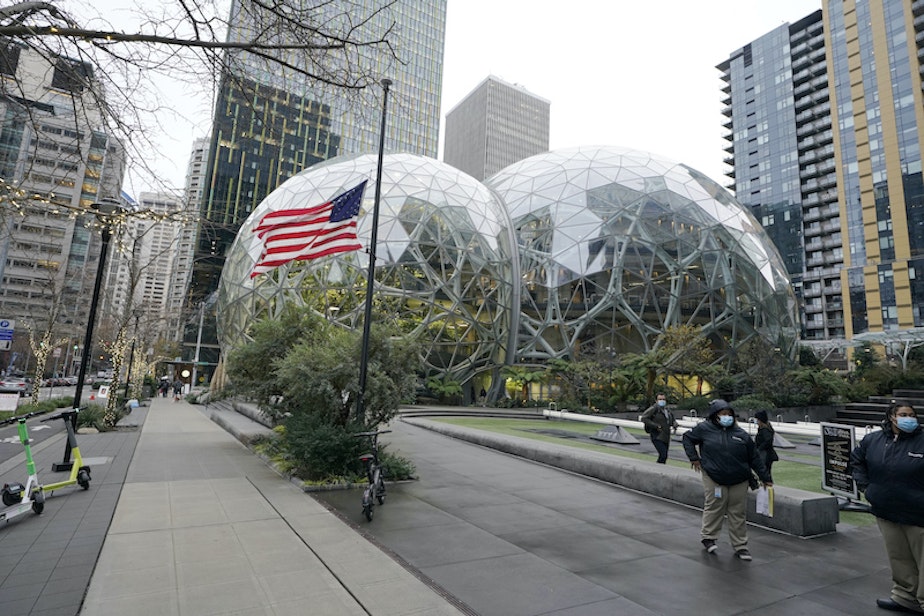Seattle weighs new tax hikes on big businesses like Amazon and other 'progressive' options

The latest Seattle City budget forecast anticipates a $35 million gap for 2023, and Council member Teresa Mosqueda said future deficits are expected to be even worse.
“It's actually a longer-term revenue gap that we are needing to close,” she said.
To help close that gap, Mosqueda said new taxes are needed.
Mosqueda and the City Council have called for new sources of progressive tax revenue, in a process that started last year, with the council’s “statement of legislative intent.”
Now, the council is working with the Harrell administration to create a new task force to come up with some progressive tax options.
One possibility, according to Mosqueda: raise the Jump Start tax on big businesses like Amazon. Mosqueda sponsored the original Jump Start legislation, which the City Council passed back in 2020.
That tax generated more than $230 million in its first year. From Mosqueda' s perspective, the key is that the tax was not “regressive” — meaning it didn't burden low-income taxpayers the way raising sales or other taxes would.
Sponsored
Mosqueda said other progressive tax options will also be on the table for the new task force, but not budget cuts.
“That is not part of what this task force should be thinking about,” she said.
The head of the Seattle Metropolitan Chamber of Commerce told KUOW that avoiding any talk of budget cuts would be a mistake, and that taxes are “not inherently good.”
But Chamber President Rachel Smith also said, “Taxes are not inherently bad.”
Smith said the business community isn't necessarily opposed to new taxes, if they know in advance exactly how that money will be spent. She said the Chamber would also like to see a clear plan that explains how any new revenue will lead to measurable results on community priorities like addressing homelessness and public safety.
Sponsored
Sponsored
Mosqueda said the task force is expected to start next month, and any new tax revenue proposals could become law this fall. After that, new taxes would likely take 18 months or more to go into effect.
CORRECTION: An earlier version of this story incorrectly referred to the Jump Start tax as a "head tax." Technically, it's a payroll tax.




